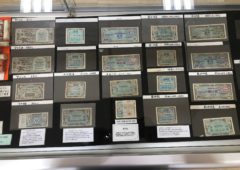2014.09.16
File sharing and downloading laws in Japan
By David Higgins
If you have been using the Internet since the mid 1990s, then you know that since the inception of the file-sharing company Napster that downloading copyrighted music, movies and software has been illegal in most countries for a long time.
 Japan is one of those countries where downloading copyrighted music is prosecutable, although it took a while to create a law to prohibit it.
Japan is one of those countries where downloading copyrighted music is prosecutable, although it took a while to create a law to prohibit it.
In October 2012 Japan officially began prosecuting individuals who pirated music, movies and software. Although I use the word “began”, in reality there has been no record of any individual caught by police under this law, so maybe began “threatening” to officially prosecute would be a better choice of words. The criminal penalties for downloading material hold a maximum penalty for two years in prison and a \2,000,000 fine.
The Recording Industry Association of Japan (RIAJ) claims that illegal downloads outnumber legal ones 10:1. The pirates of Japan use anonymous file sharing networks such as Perfect Dark, Share and Winny to mask their identity. This is in contrast to the western world pirates where anonymity isn’t as big as a concern as convenience and the timeliness of delivery.
The RIAJ says since introduction of the legislative action and its enforcement of the new laws in 2012 that they have been successful achieving a 40% decline in peer-to-peer file sharing. However, even with the decline of illegal downloads, CD sales are still in a downward trend. Music publishers say it’s too early to say whether the new penalties are having effect. I personally think that people are aware and perhaps made rethink their pirating practices, although I think we’ve all probably seen enough of the dancing camera guys at that beginning of each movie at the theaters here in Japan.
The new era of smart phones, streaming music online, and YouTube have definitely had an impact on media consumption. Why would someone in Japan buy a latest hit when they can listen to it anytime of the day on YouTube? Given that the average price of a CD in Japan is ¥3,000 and the economy isn’t exactly in the most vibrant of stages right now, it could explain why not so many consumers are running out to buy the latest AKB48 album.
It really seems that it will be an uphill battle to fight the media pirates, as every time their system of downloading is discovered and taken down, another system is created. The future for the artists creating content and getting paid for their hard work seems like it will not be as lucrative as in the decades past, but these artists could take heart in knowing that their work is still being seen or listened to, possibly even by more people, which may be the only type of compensation they will receive.
David Higgins’ website dealing with advice to couples who have decided to split while living on Okinawa is at http://www.japanupdate.com/2014/06/what-are-your-options-when-facing-divorce-in-okinawa/


 2024.06.08
2024.06.08 2024.05.25
2024.05.25 2024.04.26
2024.04.26 2024.04.22
2024.04.22 2024.04.10
2024.04.10 2024.01.31
2024.01.31 2024.01.02
2024.01.02 2023.12.27
2023.12.27 2023.11.16
2023.11.16






